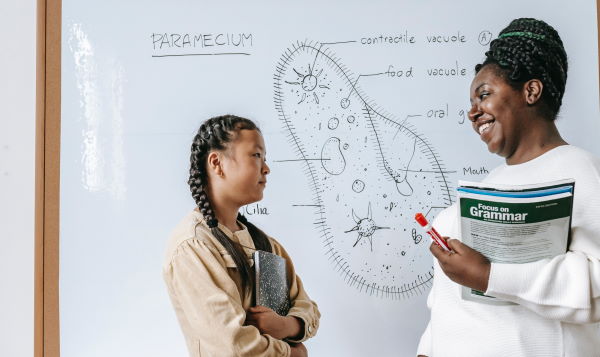Musings on the "Straight-A Student" Label
by Sabrina Gabriela Guilarte Castillo
It's not so flattering to be known mainly as a "straight-A student."
Growing up, most of my classmates thought that being known as the “straight-A student” was a compliment or a blessing. To them, it was as if you were bestowed with a magical title that gave you pride, power, and immediate respect and admiration from everyone. Few realized that being assigned that title had other implications. Behind the apparent sunshine and fairy dust, you were on the receiving end of jealousy, exclusion, and generalized conjectures. It turned you into someone's role model and someone else's villain because you had what many people wished for.
A “straight-A student” receives that title because they consistently get what is generally seen as “good grades”. But consistency creates expectations. Expectations easily turn into assumptions. Assumptions even more easily turn into generalized knowledge. And just like that, getting a couple of A's in your classes can suddenly mean that all the people around you have a commonly-built mental image of who you are, or more accurately, who you are supposed to be.

Straight-A students enjoy learning, but they have real problems like everyone else.
As someone who has borne the label of the “straight-A student” for years, many of my peers and teachers were convinced that I could be summed up into the stereotypical textbook nerd. They thought I was a self-made overachiever who only listened to classical music when I got home and was always busy studying and completing homework. They thought I was perfect and never made mistakes (which practically meant that I was not allowed to make them on their watch). Some teachers would go as far as making me a reference point for other students and holding me to higher standards because they believed that in doing so, they were doing me a favor.
In the long run, I ended up carrying not only the label of the “straight-A student”, but a whole persona I did not choose. Because of the explicitly different treatment that I received, the possibility of not living up to the expectations that surrounded me eventually turned into a big fear for me. I started having doubts I didn't know how to deal with. “What if I fail next time? What if they find out I am not who they think I am? What if I let everyone down?”. I found myself constantly battling between living up to my imposed persona and not letting the anxiety of doing so completely consume me.
Ultimately, placing unsolicited pressure and fears on someone is not doing them a favor. Convincing someone that they are supposed to be the embodiment of perfection is not doing them a favor either. There is nothing wrong with prompting someone to pursue success, but this should not take the shape of an imposed pedestal that they are not allowed to step down from. The education system, particularly teachers, should acknowledge that there is a line between success and perfection, and make it explicit that students should not strive to pursue both because, as I have learned, they may achieve one but never the other.
Consistent “good grades” or not, “straight-A students” are students too, after all. Like all students, there is a diversity and complexity to them that cannot and should not be summarized in a loosely selected stereotype or morphed into a commonly–built persona. We are people going through a learning and self–building process. It should not come as a surprise that we sometimes want the imperfect parts of ourselves seen, accepted, and genuinely appreciated. It should not be a blaring siren when we make mistakes. Other students are usually allowed to be wrong and allowed to be themselves, so why can't “straight-A students” have that courtesy extended to them too?
Learn more about a Texas Tech education in Costa Rica.
Costa Rica
-
Address
Avenida Escazú, Edificio AE205 San José, San Rafael de Escazú, Escazú 10201- Costa Rica -
Phone
+(506) 2519-9900 -
Email
Info.CostaRica@ttu.edu
